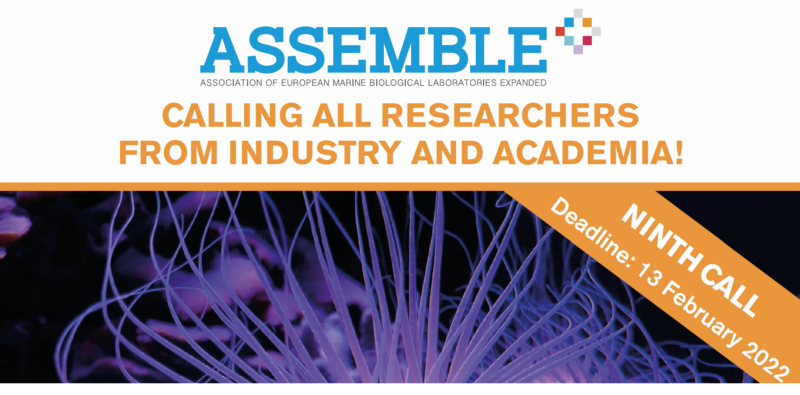
Until 13 February 2022, researchers from industry and academia can apply for free access to top-class marine research infrastructures, thanks to the opening of the ninth call of the ASSEMBLE Plus project (Association of European Marine Biological Laboratories Expanded).
ASSEMBLE Plus offers access to over 32 marine stations and institutes in 13 countries across Europe and overseas for basic and applied research in the marine science field (see overleaf). Researchers from both industry and academia can apply for on-site and remote access. Sponsorship includes travel and subsistence for two persons (one return trip per person, up to 30 days). Successful applicants will be able to carry out their project free-of-charge (subject to some limitations).
Please visit assembleplus.eu for updates on available services, call dates, application procedures and any further information on current and upcoming calls for access.